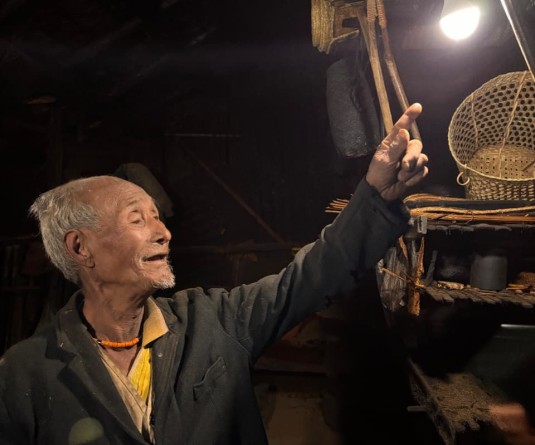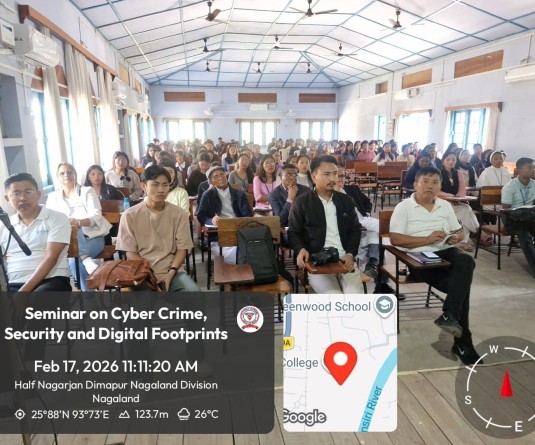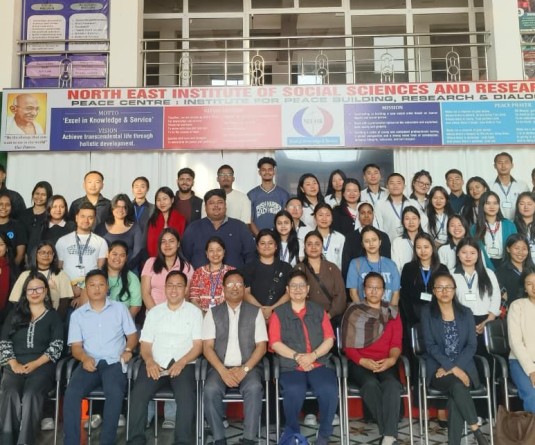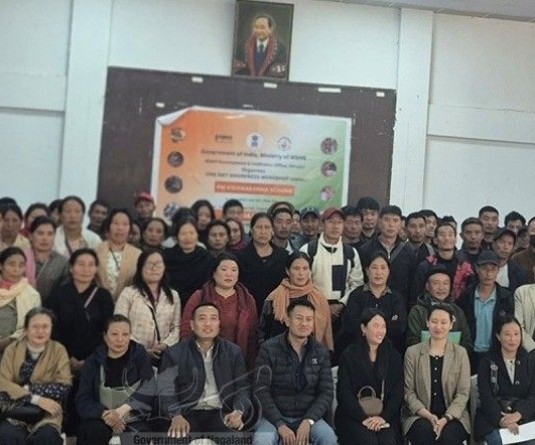Peace Activist, Niketu Iralu delivering a lecture on “Transcending Borders: Crossing Cultural Barriers” at the first day of Cultures of Peace, Transcending Borders: Celebrating Peace. The event was jointly organized by The Morung Express, Zubaan and Heinrich Böll Stiftung, India at Hotel Japfü. (Morung Photo)
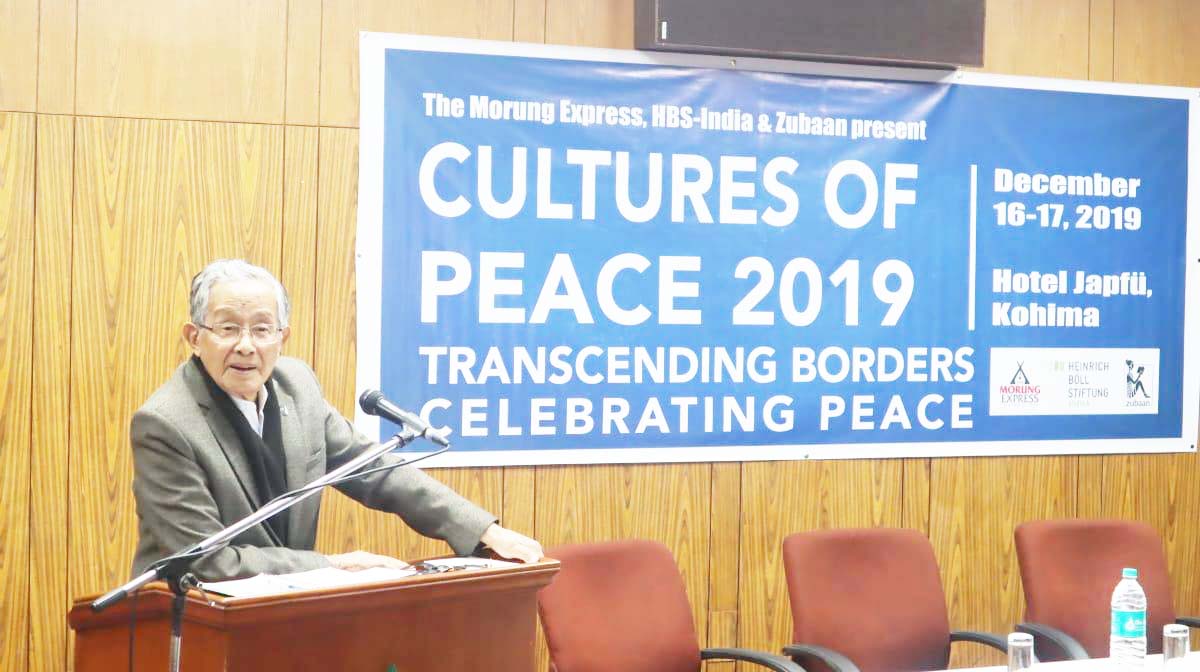
‘We Nagas need to start solving our problems’
Morung Express News
Kohima | December 16
Impressing upon that the human spirit is the only thing that cannot be suppressed whereas everything in nature is deteriorating, Peace Activist, Niketu Iralu said that we have to start the discussion of peace with that in mind. He was delivering a lecture on “Transcending Borders: Crossing Cultural Barriers” at the first day of Cultures of Peace, Transcending Borders: Celebrating Peace that was jointly organized by The Morung Express, Zubaan and Heinrich Böll Stiftung, India at Hotel Japfü.
Pointing to human aspirations as nations, tribes and societies, he said “we have to come to a point that our individual aspirations are sacred” while stating concern that “we forget our responsibilities that are worthy of our aspirations.” In the context of Nagaland, he observed that the state is so used to shouting our slogans but that we have to define our slogan from ‘Naga Sovereignty’ to ‘We Nagas starting to solve our problems.’
“Our slogans are very young as compared to others around us”, he stated and asserted that “we have to reach a point where we solve our own problems and where we are at peace that we are fighting for something sacred and important.” This, he affirmed will immediately enable the other side to respect us.
He further emphasized that the north east region must have dialogue through meetings like these and have honest conversations to create a wider common stability, which, he added is needed to achieve development. Without stability, peace and compassion, he said that it cannot be achieved and conveyed three magical words that we should start using - “We are sorry”, “We are wrong” and “Forgive us.” “We will be able to bring in mutual trust and a desire that our region can be a role model for the whole of Asia,” he added.
Substantiating to this, he expressed that “we need to go to one another and ask what are your concerns, and also understand the dilemma of your people, your tribe, your village.” Towards this end, he also said that, “I feel we should understand the nature and size of our crisis but we are not giving enough soul to our response to the challenges of change.”
He asserted that the size and nature of our crisis must be understood while stating that fragile communities like us can be united on that front, which is even more important as we are at a strategic meeting point of huge civilizations.
Giving their inputs during the discussion, participants also put across that it takes time to not only think from one’s perspective and requires more dialogues. “We need to create platforms where people from all North Eastern States can share their minds, listen to one another and support each other’s problems,” Neidonuo Angami supplemented while Dr P Ngully added that “we have to rise up to a different consciousness where we can start thinking together.”
Rosemary Dzüvichü maintained that many of us in the North East are born into a culture of war and impressed upon that “unless we move beyond this, we can’t even think of peace.”
Earlier, Chok Tsering from Henrich Bolt Stiftung, India, a Tibetan refugee who crossed 2 borders and has been in India now for the last 25 years gave a highlight about Heinrich Böll Stiftung and said that the prime objective of Cultures of Peace is to bring the cultures and issues of North East to the rest of India.
Aküm Longchari commented that “war and conflict seem to be the natural condition in which we live and if war and conflict is the natural human condition, what does it say about us?” Hope, he said is very provocative because it really pushes the human spirit but then again, it is not in isolation, Longchari noted. “We think of hope in relation to others because hope is provoking us to unite together as an opportunity to share our hopes,” he stated. Longchari encouraged the gathering to use this space to speak their hearts out to create and imagine a future in which our enemies are also part of.


